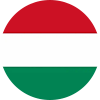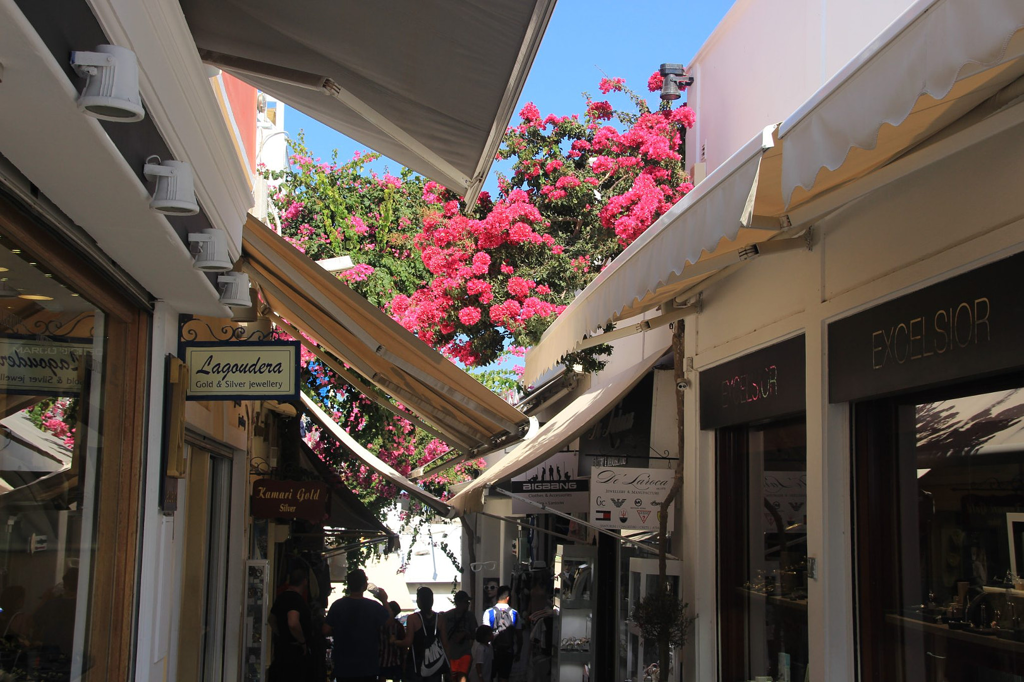
Hungarian Fund Immigration
The Hungary Guest Investor Program (GIP), also known as "Hungary Immigration 2.0," aims to provide applicants and their families with a 10-year long-term residence permit, which can be renewed for another 10 years upon expiration, through investment in a government-approved Hungarian real estate fund. The program began accepting applications on July 1, 2024, and has received a security license from the Hungarian government.
Application Process
Initial Assessment & Signing
First, an initial consultation and assessment will be conducted, including a review of the applicant's profile, information, and preliminary financial proof. The applicant will then sign a service agreement and pay the project management fee.
Document Preparation & Notarization
A detailed list of required documents for the GIP visa, opening a securities account, and the long-term residence permit will be provided. The applicant must prepare the relevant documents and arrange for translation and notarization.
GI Visa Application
An appointment will be coordinated for submission, where the main applicant will submit their GI visa application at an embassy or consulate. Upon successful approval, the main applicant must travel to Hungary within 6 months.
Arriving in Hungary & Investment
After arriving in Hungary, the main applicant must complete the investment within 3 months. This includes signing a POA and other authorization documents at the project company's Hungarian office, opening a securities account, and transferring €254,300 to the account to complete the fund subscription.
Long-Term Residence Permit Application
The main applicant will meet with a lawyer in Hungary and go to the immigration office for their scheduled appointment to submit the application and provide fingerprints. Other family members will submit their long-term residence applications and provide fingerprints at a local embassy or consulate in their home country. The lawyer will upload the investment proof to the immigration authority's website.
Approval & Card Collection
Once the lawyer receives the long-term residence approval letter and card, the project company in Hungary will coordinate shipping it to the Shenzhen project office, which will then mail it to the main applicant through the immigration company.
Main Cost Breakdown
In addition to the €250,000 real estate fund investment, the following main fees are required for the program:
Project Management Fee: Approximately €50,000 per family (an additional €5,000 per person for each dependent over three people).
Legal Fees: €10,000 per family.
Fund Subscription Fee: €2,000 (0.8% of the subscription amount).
Account Management Fee: Approximately €437.5 per year (a total of €2,187.5 for the first 5 years).
GI Visa Application Fee: Approximately €110 per person.
Long-Term Residence Permit Application Fee: Approximately €64 for the main applicant, and approximately €110 per family member.
Health Insurance (travel-related): Approximately €250 (varies by insurance period).
Third-party Fees: Include document mailing fees (approximately €160), notarization fees, translation fees, OFFI translation certification fees (approximately 1,500-1,800 RMB per document), and Hague Apostille fees, totaling approximately €1,130. The total estimated cost (excluding renewal fees) is approximately €316,234.
The fees listed above are estimates, and the actual amounts may vary due to exchange rate fluctuations or official policy changes.
Application Requirements & FAQs
Main Applicant: Must be at least 18 years old, in good health, and have a clean criminal record.
Accompanying Family: Can include a spouse (marriage certificate required, same-sex marriage is not accepted) and children (unmarried children under 18, who must be under 18 at both the time of submission and issuance of the status). U.S. citizens or permanent residents are not eligible to be the main applicant.
Investment Requirement: Invest at least €250,000 in a Hungarian real estate fund, and hold the investment for a minimum of 5 years.
Source of Funds: Proof of assets is required for the GI Visa application stage. This can be in the spouse's name (with a letter of support from the spouse) and can be a combination of multiple accounts. Currently, there is no strict requirement to trace the source of funds (e.g., providing tax returns and audit reports).


Q1. What are the characteristics of the €250,000 real estate fund investment? Can it be redeemed?
Q2. After obtaining Hungarian long-term residency, what benefits are available for living, working, and education?
Q3. What are the residency requirements and renewal conditions for the Hungarian long-term residency? How can it be converted to permanent residency?
Q4. What are the unique advantages of the Hungarian Guest Investor Program compared to other European countries?
Program Advantages
Backed by Law, Safe and Reliable
The immigration law is clear and specific, and the government supervises the entire investment process to ensure the security of investors' funds.
Relatively Low Investment Threshold
The program only requires purchasing a government-approved Hungarian real estate fund of €250,000 or more, and holding it for a minimum of 5 years.
Lenient Application Requirements
There are no rigid requirements for the applicant's age, language proficiency, business background, or education. Only proof of assets is required, with no strict requirement to provide a detailed source of funds.
Fast Processing Speed
The long-term residence permit can be obtained in as little as 3 months. The initial permit is valid for 10 years and can be renewed for another 10 years upon expiration. There are no residency requirements, which gives applicants a high degree of freedom of residence.
Benefits for the Whole Family
A single application can cover the whole family (spouse and children under 18). They can enjoy Hungary's free public education and healthcare benefits (children require a separate health insurance policy).
Travel Freely in 30 Schengen Countries
As an EU and Schengen member state, Hungary's long-term residence card allows for visa-free travel to 30 Schengen countries. Additionally, Hungary has a good business environment, with corporate and personal income taxes among the lowest in the EU, and no global tax on income.
Latest Article
Hungary’s Dual Citizenship Reform: Balancing National Sovereignty with Investment Migration
In April 2025, Hungary’s Parliament passed its 15th constitutional amendment, allowing the government to suspend certain dual citizenships — particularly for non-EEA nationals deemed potential security risks — for up to 10 years. While raising identity security concerns, the move aligns with Hungary’s dual-track strategy: tighter nationality control paired with an open-door policy for EU investment and its €250,000 Golden Visa residency route. This guide examines the legal changes, market response, and implications for investors, showing how Hungary is positioning itself as both a guardian of sovereignty and an attractive gateway for global capital.
What Is Life Like in Hungary? A Complete Guide for Prospective Residents
Hungary, a Central European gem often overlooked, offers a rare mix of cultural richness, affordability, and quality of life. Known for its thermal baths, relaxed pace, and strong family values, it attracts newcomers seeking balanced living. With moderate salaries aligned to low living costs, a robust welfare system, affordable property, and free public healthcare and education, Hungary provides both comfort and stability. This guide covers salaries, cost of living, social benefits, housing, and leisure — offering a clear picture of why Hungary is increasingly favoured by those looking for education opportunities, long-term settlement, or smart asset placement in Europe.
Top European Countries to Immigrate to in 2025: Policies & Lifestyle Advantages Uncovered
With Spain and Portugal shutting down property-based migration and other nations raising investment thresholds, 2025’s most attractive European immigration destinations are Hungary, Greece, and Malta. All three offer comparatively low entry costs, straightforward processes, and powerful residency benefits — from Schengen-wide mobility to access to world-class education and healthcare. This guide breaks down each country’s updated immigration pathway, investment requirements, and lifestyle advantages, while highlighting the broader appeal of EU residency: free movement, wealth planning opportunities, and improved quality of life for the entire family.
Hungary’s 2025 Residency Overhaul: Cultural Exam & €250,000 Investment Route Explained
As of January 2025, Hungary mandates a cultural knowledge exam for all non-EEA applicants seeking long-term residency, covering history, national symbols, constitution, and daily life — and conducted entirely in Hungarian. Meanwhile, the €250,000 property fund investment programme, launched in July 2024, offers a direct 10-year residence permit, with pathways to permanent residency in 3 years, EU long-term status in 5, and citizenship in 8. This guide breaks down the exam structure, preparation tips, and investment process, helping families strategically secure EU mobility, education benefits, and lifestyle advantages with minimal residency obligations.

 Nauru Citizenship by Investment Program
Nauru Citizenship by Investment Program
 São Tomé and Príncipe Citizenship by Investment Program
São Tomé and Príncipe Citizenship by Investment Program
 Hungarian Fund Immigration
Hungarian Fund Immigration
 Turkey Real Estate Immigration
Turkey Real Estate Immigration
 Cyprus Real Estate Immigration
Cyprus Real Estate Immigration
 US EB5 investment immigration
US EB5 investment immigration
 Malta Permanent Residence Programme
Malta Permanent Residence Programme
 Greek Golden Visa
Greek Golden Visa




